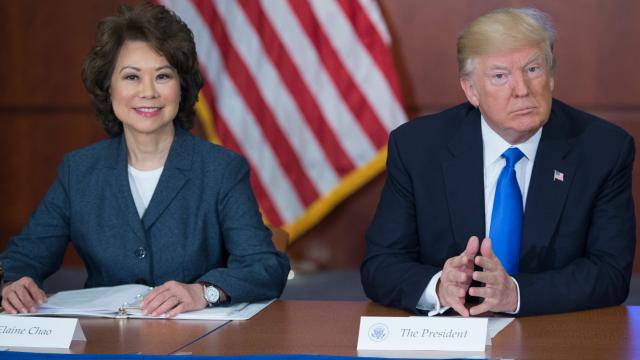Tech and auto companies developing self-driving cars will have their eyes on Washington this month, as the White House and US Congress are working on action that could steer the industry for years.
Image: Getty
Today, the US House of Representatives passed the “Self Drive Act”, which prevents US states from creating any laws that regulate the development and performance of autonomous vehicles, putting that power solely in the hands of the National Highway Traffic Safety Administration. “With this legislation, innovation can flourish without the heavy hand of government,” Ohio Republican Bob Latta said on the House floor before the voice vote.
Under the act, companies could put up to to 25,000 driverless cars on US roads within the first year, without having to worry about whether or not those cars meet regular safety standards. Over three years, the cap would hit 100,000 cars. The bill, which had bipartisan appeal, now moves on to the Senate, where a bipartisan group is working on separate self-driving-car legislation. While the House bill only accounts for passenger cars and trucks, the Senate bill could include driverless commercial vehicles.
Additionally, next week we will likely see the Trump administration’s revised guidelines for self-driving vehicles. According to Reuters, US Transportation Secretary Elaine Chao plans to reveal the new rules on September 12 at an autonomous vehicle testing centre in Ann Arbor, Michigan. The White House Office of Management and Budget reportedly approved the guideline changes last week.
It’s likely that these new guidelines will take inspiration from the call that many automakers made last November, asking Trump to rethink and change self-driving guidelines that the Obama administration issued last September. Those rules encouraged autonomous car developers to make sure cars meet a 15-point checklist of safety expectations, and undergo regulatory reviews before hitting the market.
Last month, Record reported that the US Federal Committee on Automation — a driverless-car federal advisory board formed by the the Barack Obama administration — had fizzled out under Trump. The task force made up of executives and representatives from Amazon, Apple, Ford, FedEx, GM, Lyft, Uber and other auto and tech companies was formed with the intention of advising the US Department of Transportation about policies and regulations.
But the demise of that council probably has more to do with the White House’s general apathy when it comes to regulating transportation at all: Seven months into Trump’s presidency, several top federal transportation jobs remain unfilled.
And regulation-slashing is exactly where Trump’s interests align with the tech and the auto industry. Of course, vehicle manufacturers have a long history of fighting regulations, but a new study suggests tech executives also hate red tape. The Stanford University survey published yesterday — which is the first comprehensive study of the political leanings of the Silicon Valley elite — shows that tech entrepreneurs are very liberal, especially when it comes to redistribution of wealth, universal health care, free trade, open immigration, gay rights, reproductive rights and gun control. However, the one area where their views align with the Republican party are on the matter of business regulation.
They should be pleased, then, that Washington seems to be paving the way for a a self-driving car boom.
